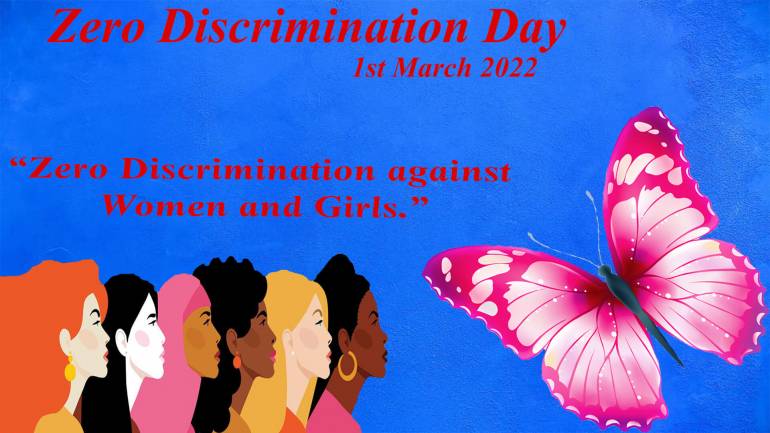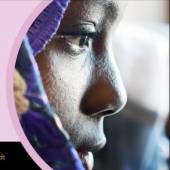Zero Discrimination against Women and Girls 2022

Zero Discrimination against Women and Girls – March 1, 2022
Mahatma Gandhi, the father of the Indian nation, said, "In my opinion, we are all born equal, but not all have the same capacity."
On every continent, in every country, in every city, even everywhere in the world, at least one person was discriminated against on account of their race, religion, gender, disability, health status, age, sex, income, class, money, as well as many of the other groups.
On the first day of March throughout the world, the United Nations Organisation celebrates Zero Discrimination Day to prevent all conflicts and violence through the United Nations Program on HIV/AIDS (UNAIDS) initiatives to improve people's social and economic status by educating them about the concept of equality.
According to UNAIDS, "inequality is growing, exacerbating the risk of division and hampering economic and social development.”
The first Zero Discrimination Day was celebrated on March 1, 2014, as part of World AIDS Day, by UNAIDS director of the HIV and AIDS program, Michael Sidibe.
As stated earlier, the original goal for celebrating and establishing Zero Discrimination Day was to combat discrimination against people who have HIV and AIDS. Furthermore, the UN wanted to promote equality for everyone worldwide. Because all have equal rights. But somehow, people were distracted from having the proper knowledge to prevent such discrimination from political, economic, social, and other policies.
The butterfly is given as a symbol of Zero discrimination by the United Nations program on HIV and AIDS. The logo highlights the problem of every society throughout the world while discriminating against people with their sexual orientation, income, gender, colour, religion, health status, age, and many other prospects, and it is a way to end discrimination and to work positive transformation.
Throughout the world, women and girls face discrimination in every sector. The UN strives to empower women and girls.
One Help Centre administrator Prema Latha, from Madurai district, in Tamil Nadu, South India, says that discrimination against women and girls first begins at home. Parents need the education to avoid discrimination against women and girls.
Educational institutions should also bring awareness of discrimination against women and girls in all colleges and schools. Discrimination would be eliminated with such participative force.
Community leaders consistently underestimate women and girls in society. Society needs good community leaders to make our communities discrimination-free. Sexual harassment and child abuse can be reduced by educating people about discrimination against women and girls.
“The day is dedicated to celebrating everyone’s right to live a full life with dignity regardless of age, gender, sexuality, nationality, ethnicity, skin colour, height, weight, profession, education & beliefs,” said sister Jagannathan Assumpta, the Animator, and Administrator of the Father Patrick Isaac Home of Hope for Women.
Sister Jegannathan Assumpta noted, “Through education and sensitization about the empowerment of women and girls at the family and society level, counselling on gender-based violence, and creating awareness about women's rights, the view of equality was instilled in the minds of women and girls. These are the contributions of Patrick's Home on Zero discrimination”.
Saint Paul’s Letter to Galatians Chapter 3, verses 26-28, says, “…for in Jesus Christ you are all children of God through faith… there is neither Jew nor Greek, male nor female, slave nor free, for you are alone one in Christ Jesus.”
How can you avoid discrimination? Do you have a story of successfully navigating a discriminatory scenario? Tell us in the comment section below.
Radio Veritas Asia (RVA), a media platform of the Catholic Church, aims to share Christ. RVA started in 1969 as a continental Catholic radio station to serve Asian countries in their respective local language, thus earning the tag “the Voice of Asian Christianity.” Responding to the emerging context, RVA embraced media platforms to connect with the global Asian audience via its 21 language websites and various social media platforms.














